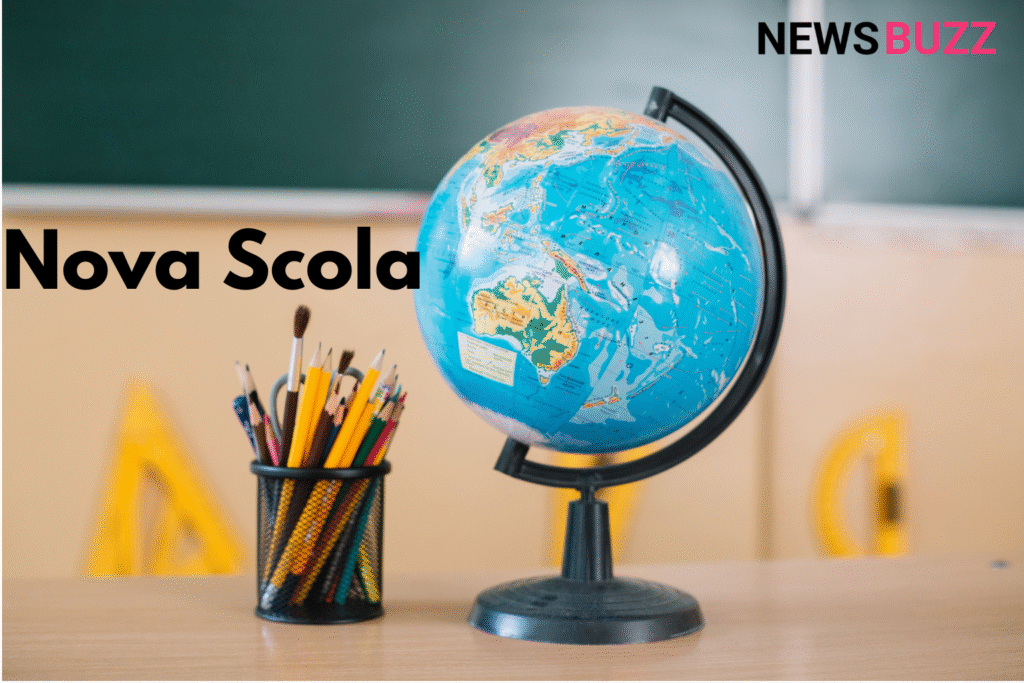Introduction
In an age where technology, globalization, and cultural exchange are rapidly shaping society, traditional education systems are being challenged to adapt. Nova Scola, which translates to “New School” from Latin, represents a forward-thinking educational philosophy that prioritizes creativity, adaptability, and real-world skills over rote memorization. This concept has been embraced by progressive educators, learning institutions, and cultural movements worldwide. Whether applied in formal schools, alternative education centers, or community-based learning, Nova Scola emphasizes personalized learning, experiential education, and global citizenship.
Understanding the Nova Scola Philosophy
At its core, Nova Scola is not just about modernizing classrooms — it’s about rethinking the very purpose of education. Traditional schooling often focuses on standardized tests and rigid curricula, but Nova Scola shifts the focus toward:
- Critical thinking over memorization
- Interdisciplinary learning instead of subject silos
- Student-driven projects rather than teacher-only instruction
- Collaborative problem-solving with real-world applications
By aligning learning goals with the challenges of the 21st century — such as sustainability, digital literacy, and cultural awareness — Nova Scola creates a framework where education becomes relevant, inspiring, and impactful.
Core Principles of Nova Scola
The philosophy can be broken down into several guiding principles:
Student-Centered Learning
Students take an active role in their own education, setting personal learning goals and pursuing topics of genuine interest.
Experiential Education
Instead of purely theoretical learning, Nova Scola promotes hands-on experiences such as fieldwork, internships, community service, and project-based assessments.
Global and Cultural Awareness
Education is seen as a tool to prepare students for a globalized world, encouraging respect for diversity, multilingual skills, and cultural understanding.
Lifelong Learning
Nova Scola doesn’t end with graduation. It nurtures curiosity and adaptability, helping individuals continue learning throughout their lives.
The Role of Technology in Nova Scola
Technology is a powerful enabler of the Nova Scola vision. Digital tools and online platforms allow students to:
- Access global knowledge repositories
- Collaborate with peers from different countries
- Engage in simulations, virtual labs, and interactive learning modules
- Track their progress with personalized learning analytics
For example, a student studying environmental science might use virtual reality to explore coral reefs or AI-based tutors to deepen their understanding of climate models.
Step-by-Step Guide to Implementing Nova Scola
If you’re an educator, institution, or even a parent wanting to adopt Nova Scola principles, here’s a practical roadmap:
Step 1 – Assess Current Learning Needs
Identify the skills and competencies students need for future success.
Step 2 – Design Flexible Curricula
Move away from rigid subject boundaries and incorporate cross-disciplinary themes.
Step 3 – Introduce Project-Based Learning
Replace some traditional exams with projects that require research, creativity, and teamwork.
Step 4 – Leverage Technology Wisely
Integrate tools like digital whiteboards, e-learning platforms, and collaborative software.
Step 5 – Foster a Growth Mindset
Encourage students to view challenges as opportunities to learn, rather than failures.
Examples of Nova Scola in Action
- Progressive Schools adopting mixed-age classrooms where students learn at their own pace.
- Community Learning Hubs where students and adults collaborate on environmental or social initiatives.
- International Exchange Programs that blend academic learning with cultural immersion.
These real-world examples highlight that Nova Scola is not just a theory, but a practical, adaptable approach to modern learning.
Conclusion
Nova Scola is more than a new curriculum — it’s a revolution in how we think about education. By prioritizing adaptability, creativity, and relevance, it prepares learners not just for exams, but for life. In a rapidly changing world, embracing the Nova Scola philosophy could be the key to building a smarter, more empathetic, and more resilient society.
FAQs about Nova Scola
1. Is Nova Scola a specific school or a general philosophy?
It’s primarily an educational philosophy, but some institutions brand themselves as “Nova Scola” to reflect this approach.
2. How does Nova Scola differ from traditional education?
It focuses on student-driven learning, interdisciplinary projects, and real-world skills rather than standardized testing.
3. Can Nova Scola work in public schools?
Yes, its principles can be adapted to fit within public school systems through curriculum reforms and teacher training.
4. Is technology mandatory for Nova Scola?
No, while technology enhances the experience, Nova Scola’s core ideas can be implemented even in low-tech environments.
5. Who benefits most from Nova Scola?
Students benefit the most, but educators, communities, and society as a whole gain from producing creative, adaptable, and socially aware graduates.



